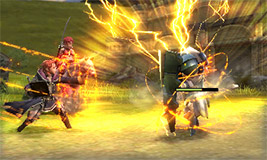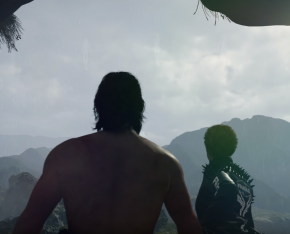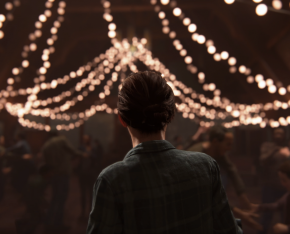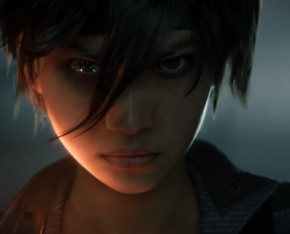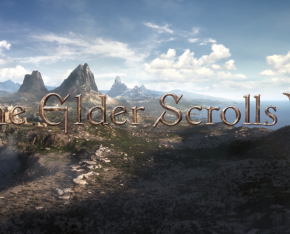By Kevin Kauffmann on July 15, 2013 at 3:26pm
As you might expect from any exclusive series to Nintendo, “Fire Emblem” has a long history of doing very little to change things from entry to entry. Mario is still essentially, Mario, but we all remember what it was like when Yoshi was introduced. Link’s been saving the princess for twenty-five years, but you can’t say “Ocarina of Time” didn’t change the game. There are watershed moments in the lives of these series, but that’s not to say that the games in between them aren’t worth playing.
Which is basically how I feel about “Fire Emblem: Awakening”.
If you’ve played a “Fire Emblem” game before, especially since they were reintroduced back in the GBA days, you’re well aware of the formula. If not, “Fire Emblem” is a ridiculously addictive strategy RPG. You have a number of different units, which are all kinds of different classes, and you wage tile-based warfare. However, be careful as you grind your levels, because “Fire Emblem” is one of the few series that actually embraces the idea of “permanent death.” If they die in battle, they’re gone forever, which makes each and every decision have so much more weight, especially when you’re trying to beef up lower level characters. In my game file, there’s a pretty little dancer who never got to see the end of the battle where she was introduced, much less the entire war. If I had cared, I might have shed a tear.
However, they have introduced a casual mode where death is not permanent. It does take away some of the frustration if your opponent gets a lucky shot and you would have to start over the entire battle in order to save the unit, but I really do appreciate the dire consequences of overextending yourself. Baiting your opponents into attacking is not just a tactic in this series, it’s encouraged.
I’ll stick with classic, but you can try out casual if you want.
I do want to go back to that “not caring” thing I mentioned earlier, as it really is one of the few flaws. While in some of the other “Fire Emblems” I actually was invested in the story, this entry left me unsatisfied. “Fire Emblem: Awakening” features a slightly-interesting time travel plot, which in turn leads to some interactions between parents and grown-up children from the future, but it suffers from being completely transparent. Within the prologue itself, events from the endgame are shown and in my case, completely disconnected me from the main character.
Without that investment into the story of these people, I had no real incentive to engage in any of the support conversations, the recruitment of the possible children, which is possibly the biggest addition to the series. It’s an interesting mechanic, and by placing units nearby on the board, which is how you build up their relationship, it allows for follow-up attacks, increased stats, and other benefits. However, I was only interested from the gameplay aspect, because I couldn’t care about a single one of the rather long-winded conversations between characters I didn’t enjoy at all. Thank God for Gregor, that caricature of a Russian mercenary. At least he had an interesting outlook on life; otherwise I may have disliked all the characters.
However, the story seems to be the only real downside to the game. In contrast to some of the earlier titles, “Awakening” features random battles on old maps where you can grind out levels and make yourself more formidable. This is particularly useful, as you can completely customize your characters, switching them from class to class and retaining their old stats, so you don’t have to worry about rationing out experience to all of your characters. Even if there are no enemy units on the overworld map, you can buy items to summon them, so you really do have a lot of options, especially if you want to pursue the support conversations and really get deep into the character creation.
Before I forget, it’s a very pretty game. This is one of the few 3DS games I’ve played where the 3D did not get in the way of my experience. Although the conversations are the same, character portraits are still displays while text rolls through the screen, and the tiles and sprites are the same quality they have been since the GBA; the confrontations between soldiers now takes place with 3D models, which are quite interesting to see. Only at the end of the game did I bother speeding up or skipping the animations, as I didn’t mind seeing my warrior’s axe crash down on a grunt’s helmet a hundred times. It’s satisfying and really makes the risky decisions build more anticipation.
Also, the anime-like cut scenes use the 3D well, and I almost wish there were more of them as a result. Unfortunately, most of the story plays out through those text conversations (even if the voice actors/actresses provided some grunts and general noises to complement them). I understood why; it would be a massive undertaking to get all those characters full voice-acting, so it ended up not bothering me in the slightest. It just would have been cool to see some more slick animation.
In the end, I loved the hell out of “Fire Emblem: Awakening,” but that was almost entirely because of the gameplay. If you’re looking for story on this one, you might want to try another RPG, but if you like SRPGs or you’re already familiar with “Fire Emblem,” there are definitely worse ways to spend 30+ hours. My end game clock was around 35 hours, and while I didn’t explore the future children mechanic fully, I did fight all of the random encounters that spawned. By the end, I got everything I wanted out of the game.
Which is why I don’t really need “Fire Emblem” to change.
